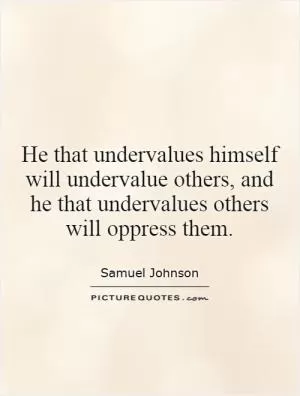He that fails in his endeavors after wealth or power will not long retain either honesty or courage

He that fails in his endeavors after wealth or power will not long retain either honesty or courage
Samuel Johnson, a renowned English writer and moralist, believed that the pursuit of wealth or power could have a corrupting influence on an individual's character. In his famous quote, "He that fails in his endeavors after wealth or power will not long retain either honesty or courage," Johnson suggests that those who are unsuccessful in their quest for material success are likely to compromise their integrity and moral values in the process.Johnson's assertion is rooted in his observations of human nature and the inherent temptations that come with the desire for wealth and power. He understood that the pursuit of these goals often involves making difficult choices and sacrifices, which can test a person's moral compass. When faced with setbacks or failures in their pursuit of wealth or power, individuals may be tempted to resort to dishonest or unethical means to achieve their objectives. In doing so, they risk compromising their integrity and losing sight of their values.
Furthermore, Johnson believed that the pursuit of wealth or power could also erode a person's courage. The relentless pursuit of material success can be draining and demoralizing, leading individuals to become disillusioned and disheartened. In the face of adversity, those who have placed their sole focus on acquiring wealth or power may lack the resilience and fortitude to persevere. As a result, they may abandon their principles and values in favor of expedient or self-serving actions.
Johnson's quote serves as a cautionary reminder of the potential pitfalls of prioritizing material success over moral integrity. He believed that true courage and honesty are qualities that must be cultivated and maintained, even in the face of adversity. By emphasizing the importance of upholding one's values and principles, Johnson encourages individuals to prioritize their moral compass over the pursuit of wealth or power. Ultimately, he reminds us that true success is not measured by material wealth or status, but by the strength of one's character and the integrity of their actions.












 Friendship Quotes
Friendship Quotes Love Quotes
Love Quotes Life Quotes
Life Quotes Funny Quotes
Funny Quotes Motivational Quotes
Motivational Quotes Inspirational Quotes
Inspirational Quotes